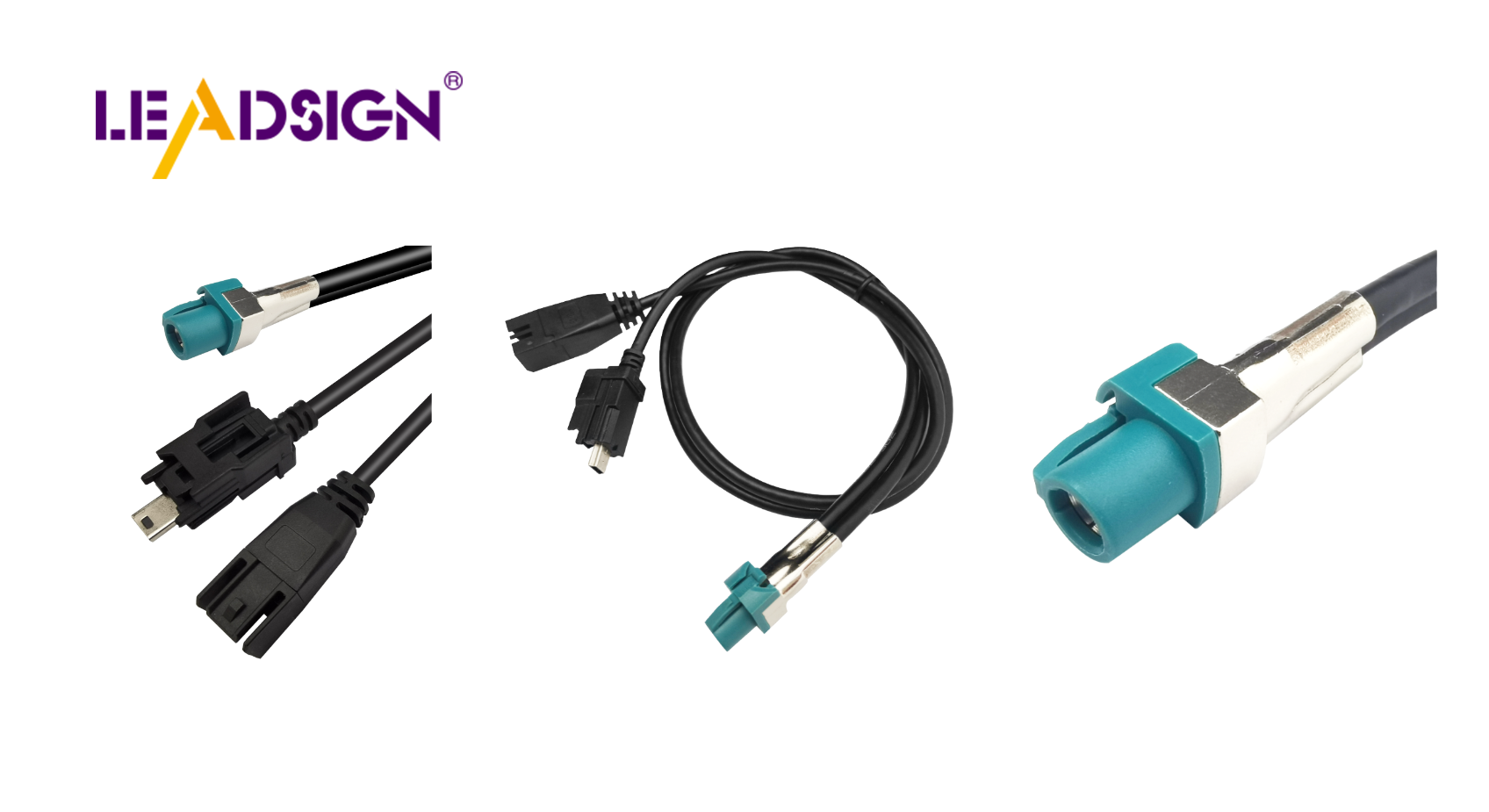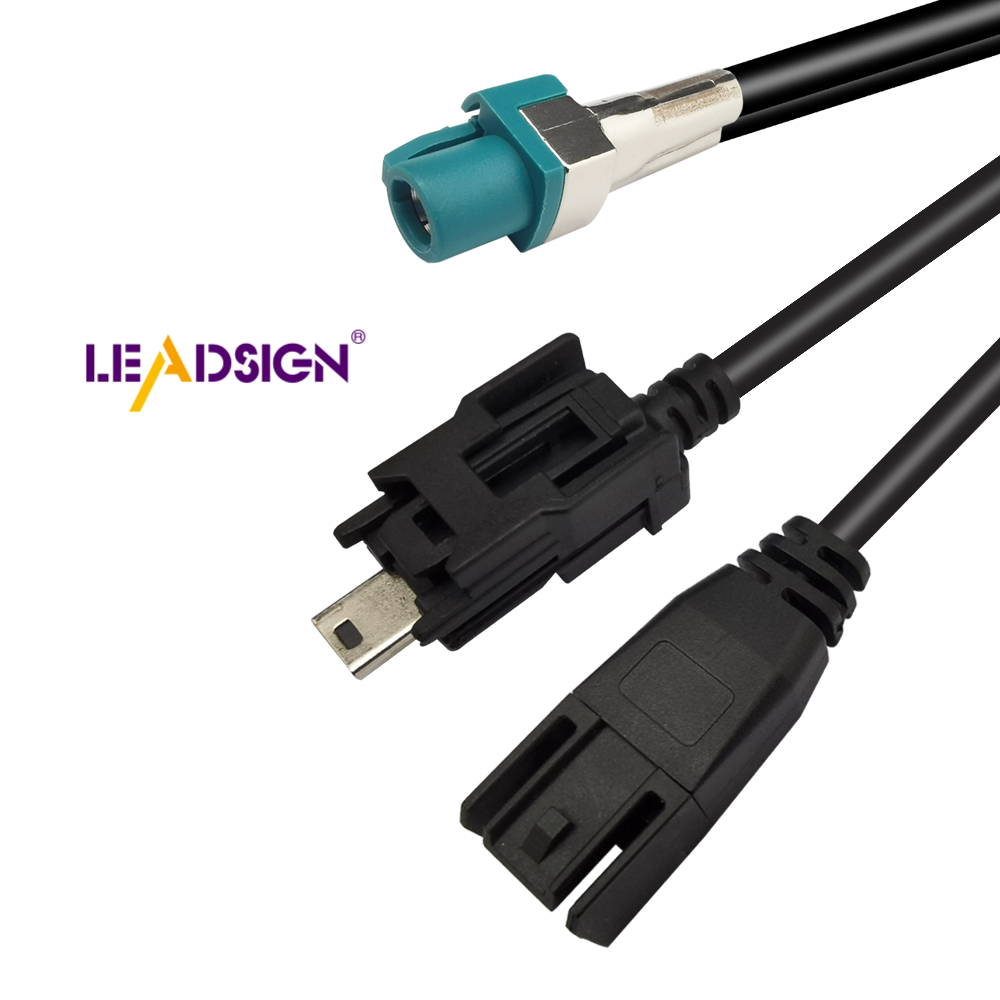How to Identify Automotive Electrical Connectors Types

Understanding automotive electrical connectors types is crucial for effective vehicle maintenance. Selecting the correct connectors is essential for both safety and functionality. These connectors play a vital role in systems such as lighting, engine control, and entertainment. Choosing the wrong connectors can lead to issues or even accidents. Familiarity with their applications aids in proper car repairs, ensuring safety and smooth operation.
Types of Car Electrical Connectors
Open Plugs
Features
Open plugs are often used in cars. They don't have seals. This means they aren't waterproof or dustproof. They are simple and easy to use. You can spot them by their basic look, with plastic covers and metal pins.
Usual Uses
Open plugs go in places inside a car that stay dry and clean. They're used for things like the dashboard or lights inside the car. These connectors work where water and dirt won't reach.
Wire Tail Connectors
Features
Wire tail connectors have short wires attached to them. This makes it easy to join them with other wires. They can be used for many things in a car. The wire gives flexibility, making connections simpler.
Usual Uses
Wire tail connectors are found in wiring groups. You might use them when fixing or changing car parts that need electricity. They're good for sensors, lights, and switches both inside and outside the car.
Fast Data Connectors
Features
Fast Data Connectors send lots of data quickly. They are strong with main and extra locks. These connectors hold cables tightly and stop wrong connections. They're perfect for sending data reliably.
Usual Uses
FDCs are common in car electronics systems like cameras, USB ports, and entertainment devices. They're also used in radio stations for telecoms. Their speed is key for modern cars.
Tools and Resources for Identification
Finding out what kind of car connectors you have can be hard. But, with the right tools, it gets easier. This part will show you online tools and real gadgets to help find these connectors.
Online Utilities
Features
Online tools make finding car connectors easy. They have pictures and details about different connectors. You can use them on any device with the internet. They let you search by shape, pins, or color. Some even have forums where people share tips.
How to Use
To use online tools well, first take a clear photo of your connector. Upload this picture to the tool's site. Use search options to narrow choices down. Look at pictures and read descriptions closely. Check pin layout and shape carefully. Read user comments if there are any for extra help. This way, you find the right match fast.
Physical Tools
Types of Tools
Real tools are great for checking car connectors by hand. Common ones are multimeters, pin removers, and magnifiers. Multimeters test if connections work right. Pin removers help take out pins safely without harm. Magnifiers let you see small parts better.
Usage Tips
When using real tools, stay safe first! Wear gloves and goggles always. Use a multimeter to check if the connection is complete. Be gentle with pin removers so pins don't bend or break. Look at the connector with a magnifier for marks or numbers that give clues about its type. Follow these steps to know your connectors well and keep them working in your car.
Environmental Factors Affecting Connectors

Vibration Resistance
Importance
Vibration resistance is key for long-lasting connectors. Cars move a lot, which can loosen or break connectors. You need strong connectors to keep electric connections steady. This stops problems in important systems like the engine and lights.
Testing Methods
To check vibration resistance, you can do tests. One way is using a vibration table to mimic road bumps. This shows weak spots in connectors. Another test is the shaker test, which uses different shakes to see if connectors last. These tests help ensure connectors stay tight and work well.
Temperature Extremes
Impact on Connectors
Extreme temperatures affect car connectors a lot. High heat makes materials expand, causing loose connections. Cold makes them brittle, risking breaks. You must think about these to keep connections reliable.
Mitigation Strategies
To fix temperature issues, use some strategies. First, pick materials that handle hot and cold well for your connectors. They stay strong in any weather. Second, add thermal insulation to protect from extreme heat or cold. This acts as a shield against temperature changes. Lastly, check connectors often for damage signs. Finding problems early helps fix them before they get worse. By doing this, you make sure your car's connectors last longer and work better.
Easy Tips to Find Connectors
Finding car electrical connectors can be tricky, but you can learn it. Here are simple tips to help you find connectors easily.
Where Connectors Are Used
Different Situations
Think about where connectors are used in the car. Connectors in the engine area are different from those inside because of heat and shaking. You might see sealed ones where it's wet, while open ones are in dry places. Knowing these helps you pick the right connector for each part.
Smart Ways
Use smart ways to make finding easier. Look at where the connector is and what it does in the car. Count how many pins there are and check its shape. Use a flashlight for hard-to-see spots. Keep a guide nearby to compare connectors by sight. These steps help you find the right type and avoid mistakes.
Knowing Male and Female Parts
How to Tell Them Apart
Knowing male and female parts is important for finding them right. Male parts have sticking-out pins; female parts have holes for pins. To tell them apart, look at the end of the connector. Pins mean it's male; holes mean it's female. This easy way helps you know which part it is fast.
How to Replace Them Right
When changing connectors, follow rules so they fit well together. First, match male with female parts correctly. Check pin numbers and layout so they fit right. Use a multimeter to test before finishing up changes. These steps make sure connections stay safe and work well in your car.
You now know about car electrical connectors. Finding the right ones keeps your car safe and working well. Each connector is special and used differently. Use this to help with car projects. With what you learned, you can fix and improve your car easily. This makes sure it works safely and smoothly.
See Also
Exploring HSD Connectors in Automotive Sector
Navigating Ford Fakra Connectors
Significance of Fakra Connectors in Modern Cars

